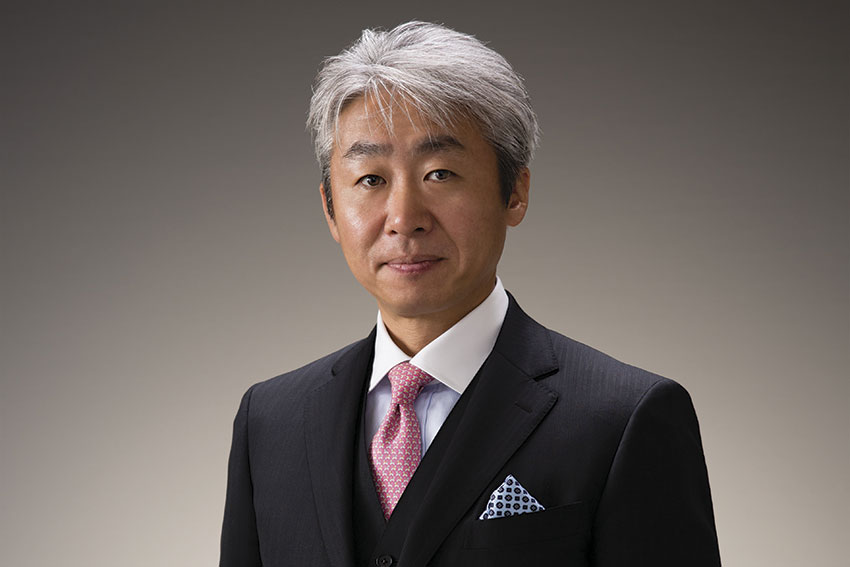Many companies are identifying highly lucrative opportunities to export high-tech Japanese products, services and know-how, particularly to emerging markets

An increasingly globalized world has added many benefits and risks, particularly for a market such as Japan. While the ongoing financial crisis has pulled many countries into economic recession, a slew of economic reforms from the Japanese government are seeing the island nation climb its way out of two decades of deflation. Furthermore, huge growth potential has been identified by the private sector as a way of capitalizing on emerging markets by delivering Japanese technological high-tech products and services to the world, particularly in niche areas.
“Sansei Technologies’ main clients are in the U.S and Europe. We do not have many clients in Asia, so the Trans-Pacific Partnership (TPP) will help us expand our share in the Asean region, as the countries are growing and we see potential in the area in the next five to 10 years,” says Makoto Nakagawa, President of Sansei Technologies, Inc., an amusement ride manufacturer whose reputation is world renowned. “Disney does not allow vendors to say, ‘Disney is our client.’ However, we are among the few companies in the world allowed to say it because they trust us and are not worried about being associated with our brand,” explains Mr. Nakagawa.
The signing of the TPP must be accompanied by domestic policies that will extend the benefits the deal will deliver to the entire country. By fostering trade with regional neighbors and existing business relations, many local companies stand to gain from the new agreement.
“It is important to create something that can be differentiated in the Japanese market and also be competitive in the global market. It is a good idea to target the ‘pro-Japanese’ countries, like Thailand and Vietnam. Especially, to follow the movement like in the automobile sector and expand where Japanese companies are already present,” says Kenji Miura, President and RD of Systena Corporation. “IoT is our core idea and we are strategizing how to utilize this in the global market and export Japanese technology.”
Not only will there be regional benefits, but the agreement will be important for U.S.-Japanese relations and the new era of a more coordinated, sustained and combined commercial and security collaboration in Southeast Asia. In a bid to secure international leadership in emerging markets, the U.S. and Japan are focusing on several drivers that are critical to this development.
These drivers include the huge commercial stakes the two nations have in the region, who therefore share an interest in the stability and security of its future. The rising prominence of the Asia-Pacific as a growing market and an important integrated trading partner of both countries is pivotal to strengthening their economies. Southeast Asia is key to regional defense and the ongoing threat of China’s rising assertiveness in the region is critical in driving a mutual interest in enhanced collaboration, including the 2015 revised defense guidelines.
These drastic reforms aimed at revitalizing the economy will provide immense opportunities for international Japanese corporations, like Sony and Panasonic who, as Abenomics strengthens the yen, see tighter profit margins from overseas operations. As well as making exports from Japan more expensive, the situation is making it more attractive for competitors to import and sell in Japan. But domestic companies that are competitive and green in their approach can stifle their international competitors. “Our facility does not have an equivalent in the world, and our recycling and waste collecting system cannot be found elsewhere either,” claims Ichizo Yoshikawa, President and Chairman of Suminoe Textile Co., Ltd.
Understanding the need to combat global competition, Japanese tech companies are amalgamating their resources to be more competitive. For example, a merger between the LCD operations of Sony, Toshiba and Hitachi gave birth to Japan Display, a major supplier to Apple.
Once labeled as having Galapagos Syndrome – a symptom that explains how Japan’s culture, consumer trends and ideals differ to Europe, the U.S. and Asia – Japan is experiencing a departure from this term as it demonstrates it is capable once again of producing companies and services competitive in world markets.
It is clear that Japan is changing, spearheaded by the innovative high-tech industry with support and direction of Mr. Abe’s policies. New technologies and demand for unique services and consumer electronics on a global scale have produced greater optimism and confidence in Japan’s economic future. The main policy that changed is the push to go international, and the key to the future is adapting to this shift in globalization.
Keizo Morikawa, President, RD and CEO of Cosmo Energy Holdings Co., Ltd., is an advocate of the new reforms from the Japanese administration and the new perception Japan is creating as an integrated global economy. He says, “Mr. Abe is a challenger, and (former Economy Minister) Akira Amari, for example, was very aggressive in TPP negotiations. We do have our shy side, but I’d like them to know that we also have this outgoing, very globally minded perspective as well.”
0 COMMENTS